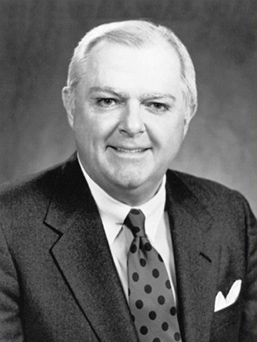
Tom Ferguson is an exception among agency founders. Not only has the size of his organization—one of the world’s largest medical agencies—set him apart, but he also came to the task of building an agency from a different perspective than his peers. The impetus behind most agencies is often a powerful creative ability, an insightful marketing sense, or a capacity for research and analysis. Ferguson would be the first to disallow any heavy expertise in these agency disciplines. Of course, Ferguson is knowledgeable about Rx advertising, but he has said many time in explaining his success: “I’m just a dumb guy who knows how to hire smart people.”
Hiring the right, smart people is no small talent, and Ferguson’s organization is built on more than skillful recruitment. The key ingredient for Ferguson has been “people.” His considerable achievement rests on his remarkable interpersonal skills—the one-on-one relationships he has created with clients on all levels and his employees.
His beginnings in healthcare were with Becton-Dickinson, the diagnostic and medical devices manufacturer. From B-D, he moved to the Frohlich ad agency, working on the Parke-Davis account as an account executive. Then, just before Frohlich closed its doors with the death of its leader, he joined Sudler & Hennessey in 1971. At that time, S&H was a training ground for young ad agency entrepreneurs. He was one of a group of individuals who left the agency in the early 1970s to set up their own agencies. He opened Thomas Ferguson Associates in 1974.
Success was not immediate. In fact, the agency struggled to survive. Ferguson’s determination to make his mark, however, was not to be denied. For example, long-term employees tell of his ability for ingenious improvisation in presenting his “organization” to prospective clients. His offices were not fully furnished, so Tom, with the help of his wife and staff, would move the dining room table from his home to the office to become a conference table for presentations.
Says, Susan DiDonato, senior vice president, human resources at CommonHealth, “Yes, that really did happen…moving the dining room table from Hunterdon County to the office in Morristown. And then, there were the times when clients would come in and doors would be closed with names on them. We didn’t have any people at that point. He made it look like a big organization. People want to attach themselves to that.”
In these early years, Ferguson was perfecting his style of projecting an aura of success. Hi ring outstanding people was a crucial part of his approach. Additionally, and just as importantly, was Ferguson’s ability to create a positive work environment with an ethic of teamwork that generated productive programs for his clients. Successful campaigns drew attention to the agency, and business began to come in. Helping things was Tom’s decision to locate in New Jersey, right on the pharmaceutical industry’s home ground. For a “people person” like Ferguson, this ready access to clients was important.
Also, he was not shy in promoting the agency. Even when money was tight, he invested in advertising on the agency. In his first ad, he announced that “We have the horses,” even while he was looking for the kind of people he wanted in his organization.
Who he hired was vital to Ferguson. Experience and talent were prerequisites, but intangibles were also in the picture. Says Matt Giegerich, president and CEO of CommonHealth, “It was important to him that he was not hiring gunslingers who were purely about business and left the means to the end outside of the door. The nature of how they conducted business, life outside the office, family life, charitable pursuits, you name it…Tom was interested in all these qualities in people he brought on board.”
In seeking these characteristics in others, Ferguson was reflecting his own values. And in discussing Tom’s secret to success, those who know him best cite his passion for the business, coupled with his compassion for everyone he came in contact with.
To the agency’s advantage, Ferguson’s capacity for relationships led to strong ties with clients. Tom was very good with top management and was known for making business calls by himself at the highest level to see how the account was being handled and then acting to correct any problems. In addition, he would spend time to good advantage at the lower levels at the client, discussing the agency assignment with product managers and marketing services, and even the traffic people.
Often his meetings with company executives took place on the golf course, in the atmosphere of friendship and congeniality that Ferguson created. Consistent with his sociability, he loved to entertain. It was not unusual at the height of his career for him and his wife Roberta to be at business dinners more often than dining at home. For some in advertising, socializing is a burden, but Tom was in his element with this side of the business; and, because he enjoyed it, everyone had a good time and he was able to establish closer client relationships that helped him gain and hold accounts.
Describing Ferguson’s access at clients, Phil Brady, a long-time associate, explains, “Tom opened the door. And then he brought others in to accomplish what needed to be done.”
John Zweig, who worked with Ferguson for many years, adds this to his portrait: “Charismatic…wildly determined to succeed…intuitive…willing to take risks…really an amazing combination of, I would say, a self-fulfilling prophecy. He wants it to be true and then it becomes true.”
What is “true” for Thomas G. Ferguson is the multi-layered organization of CommonHealth—a company with capitalized billings in 2001 of $1.8 billion, more than 1,500 employees, with 16 operating units in this country and overseas, serving dozens of pharmaceutical manufacturers including AstraZeneca, Bayer, Ortho Biotech, Ortho-McNeil, Schering, and Warner Lambert. What a testament to his personality and determination!